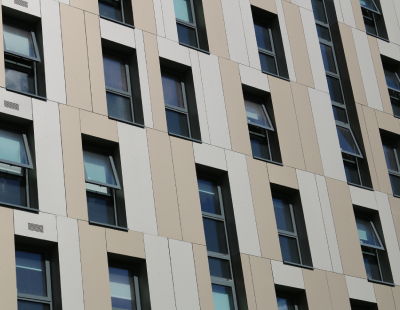
The proposed tax would apply only to developers’ profits over £25m – an idea first mooted in February as part of a £5 billion package to pay for the remediation of unsafe cladding on high-rise residential buildings.
A statement issued by the Ministry of Housing, Communities and Local Government says that the government believes it is right that residential property developers – “who will benefit from the restoration of confidence to the housing market” – should help fund the significant costs associated with the removal of unsafe cladding.
The tax will raise a predicted £2 billion for the remediation and will serve two purposes – as a general tax on housebuilder profits and also a ‘gateway’ tax for those applying for consent to develop high-rise buildings.
Housing Secretary Robert Jenrick says: “We’re making the biggest improvements to building safety standards in a generation, investing over £5 billion helping to protect leaseholders from the cost of replacing unsafe cladding on their homes and ensuring industry is held to account for the wrongs of the past.
“This tax will strike the right balance between developers making a contribution and ensuring fairness for the taxpayer.”
And the Financial Secretary to the Treasury, Jesse Norman, adds: “Ending the use of unsafe cladding is a priority for the government, as it builds back better from the pandemic.
“Given the significant costs associated with the removal of unsafe cladding, it is right to seek a fair contribution from the largest developers in the residential property development sector to help fund it.”
The consultation wants views on the tax including proposals that it would apply to a measure of developers’ profit from UK residential development, would be levied only on profits over £25m and would apply to conversion of existing buildings as well as new construction.
Ministers intend to set out the rate of the tax at a future Budget, but it is time-limited in that it will apply from 2022 and is intended to raise at least £2 billion over a decade.
